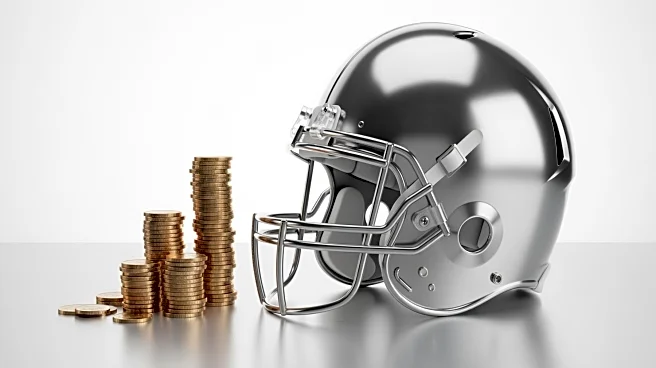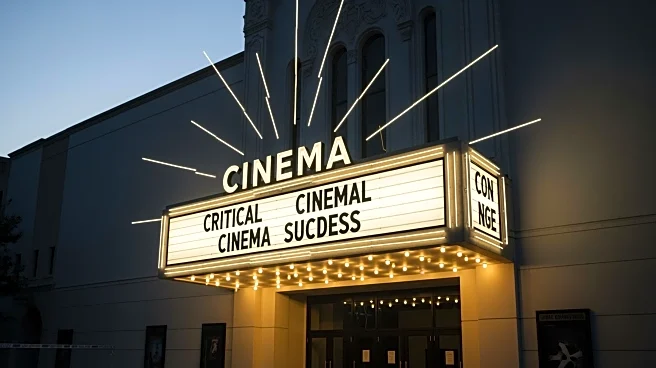What's Happening?
Kentucky quarterback Zach Calzada has issued an apology following a controversial video in which he displayed a stack of $100 bills, a portion of his NIL earnings, in response to fan criticism. The incident began when a fan criticized Calzada's performance
this season on social media. In reaction, Calzada sent a video directly to the fan, showcasing the money and spreading it on the floor. Calzada later expressed regret for his actions, stating on Instagram that he let his emotions get the best of him and that the video did not reflect the gratitude he should have as a member of the Kentucky Football team. He apologized to his teammates, coaches, and fans, promising to learn from the incident and move forward with more respect. Kentucky's spokesperson acknowledged Calzada's apology and emphasized the importance of moving forward.
Why It's Important?
This incident highlights the ongoing challenges and scrutiny faced by college athletes in the era of Name, Image, and Likeness (NIL) deals. Calzada's response to criticism underscores the pressure athletes face both on and off the field, especially when financial aspects are involved. The situation also reflects the broader implications of NIL deals, which have introduced significant financial opportunities for college athletes but also increased public and media scrutiny. The apology and subsequent handling by Kentucky's football program demonstrate the importance of maintaining professionalism and gratitude despite external pressures. This event may influence how athletes manage their public personas and interactions with fans, potentially affecting future NIL negotiations and athlete conduct policies.
What's Next?
Moving forward, Calzada and the Kentucky football program will likely focus on rebuilding trust with fans and maintaining a positive team environment. The incident may prompt discussions within the NCAA and college sports programs about the impact of NIL deals on athlete behavior and public interactions. Kentucky's response to the situation could serve as a case study for other programs in managing similar controversies. Additionally, Calzada's future performance and conduct will be closely watched by fans and media, potentially affecting his reputation and career prospects.
Beyond the Headlines
The incident raises questions about the ethical and cultural dimensions of NIL deals in college sports. It highlights the need for athletes to balance newfound financial opportunities with the responsibilities of representing their teams and institutions. The situation may lead to increased emphasis on educating athletes about managing public interactions and financial transparency. Furthermore, it could spark broader discussions about the role of social media in athlete-fan relationships and the potential consequences of online behavior.















